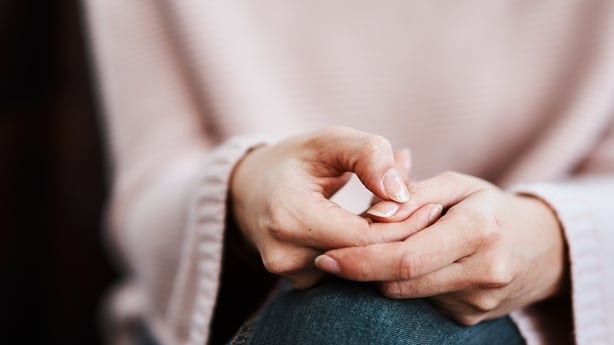Cleaning the bathroom, endless Zoom meetings, and general life admin might not seem like the pathways to happiness, but maybe it's time we start thinking of them as such.
Positive Psychologist Trudy Meehan from the Royal College of Surgeons in Ireland (RCSI) joined the Brendan O'Connor show to talk about why you should relish your household chores, perceive your job as a calling and how optimism can actually be seen in your DNA.
The RCSI has recently published a book called Positive Health: 100 Research-Based Positive Psychology and Lifestyle Medicine Tools to Enhance Your Wellbeing. In it, Meehan - one of the co-authors - explores how science can offer ways to make your day-to-day life.

Positive psychology is at the heart of it, which looks at the things that humans are actually interested in and care about and how we can focus on the things we say "yes" to.
Of course, there are some circumstances where finding and holding onto positivity will be especially hard, if not seemingly impossible, for some people, which the authors acknowledge.
"Environment is central and more and more research is showing that the environment is the core of our health. We need to stop thinking of people as individuals", Meehan says.
"We have to think of ourselves as interconnected and if we want to thrive and be well, we need healthy communities and healthy relationships, and we need systems that see us as interconnected humans who flourish when we're in good relationships and good systems."
Another factor is optimism, which the authors writes is in our programming as humans. Not only that, but they claim that we become more optimistic as we get older. "We have both an optimism bias and a negativity bias", Meehan says.

"They both work together, sometimes to bring a perfect storm. Our optimism bias helps us think about the future and think, ah, it'll be grand. You plan to do something, you underestimate the obstacles and how much time [it'll need].
"That can be helpful to get us to do something scary, but it can be bad because we underestimate, like global warming or the negative effects of smoking."
Our optimism grows as we age, Meehan says, because we "stop taking on negative feedback and you get more resilient to it". When it comes to negativity, however, we remember negative emotions way more than positive ones.
This is why mindset is a central part of how we approach situations, Meehan says. "Now we understand there's a connection between our thoughts and our physical body, right down to the cells in our body."
She adds that scientists working in the area of mindset can find a link in how our bodies perceive stresses. For this reason, two people could experience the same level of stress but only one could be more severely impacted by it.
Research suggests that viewing stress as a challenge rather than a threat changed the cells and the organ response. If you view something as a threat, Meehan explains, your vascular system contracts and restricts blood flow to your organs.

As well as this, you get a "prolonged release of cortisol", the stress hormone, Meehan says.
However, if you see stress as a challenge, the blood flow increases and you can think better. You get a short, sharp spike in cortisol, which is energising to the body and spurs you on.
Slow, controlled breathing, which Meehan calls "the secret language of our body", is the key tool for working with stress. She acknowledges that thinking of something scary as a challenge isn't always possible, but breathing "can talk to our body in a way that our minds can't".
To listen back to the full interview, click above.

